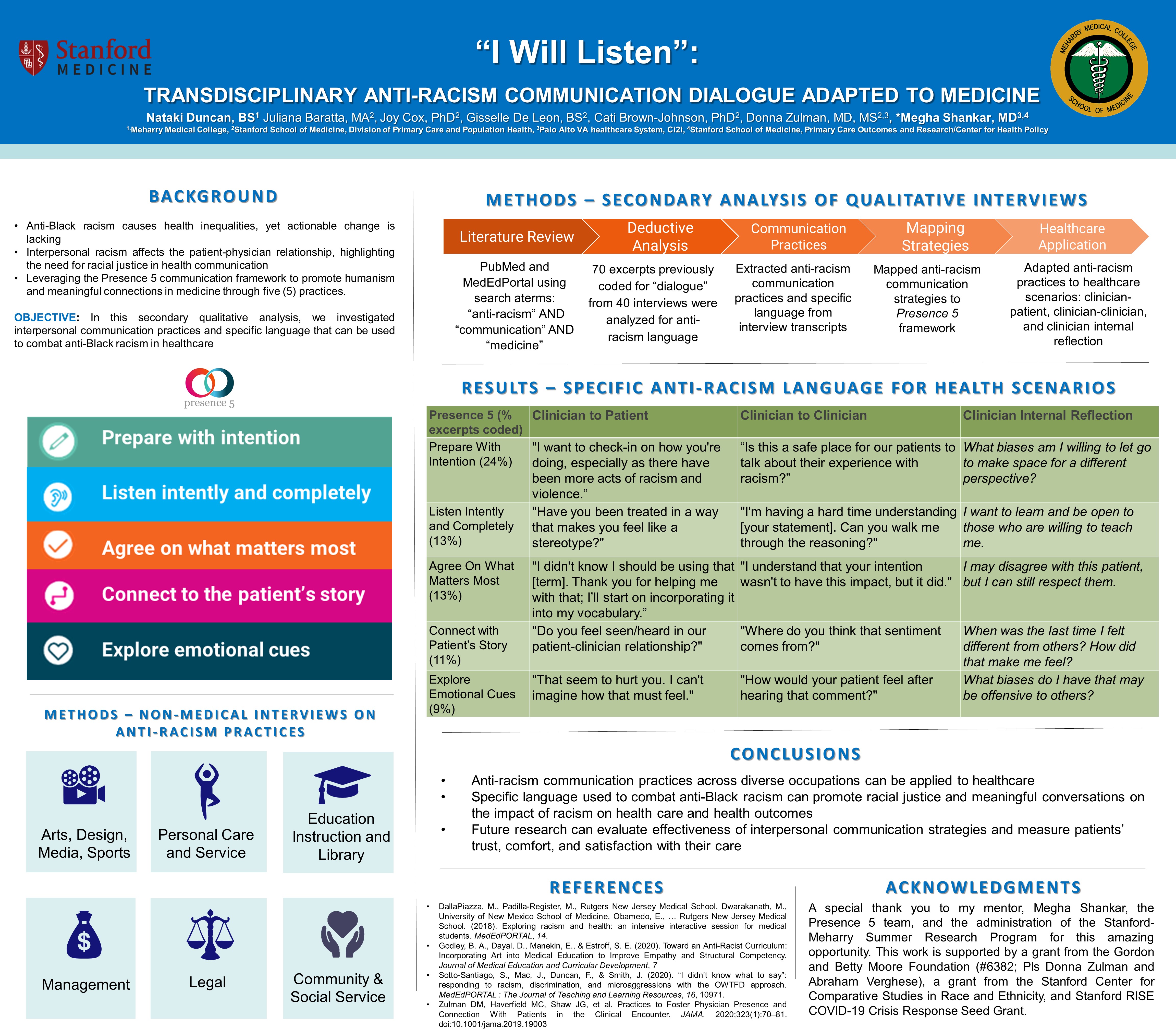SRFP055: "I Will Listen": Transdisciplinary Anti-Racism Communication Dialogue Adapted To Medicine
Nataki Duncan; Joy Cox; Megha Shankar, MD; Gisselle De Leon, BS; Juliana Baratta, MS; Cati Brown-Johnson, PhD; Donna Zulman, MD, MS
Abstract
Objective: This study investigated communication practices and specific language used to combat anti-Black racism in healthcare.
Study Design: Secondary analysis of interviews, using deductive approaches to identify transdisciplinary anti-racism practices. The secondary analysis focused on excerpts coded for "dialogue,” which is relevant to communication practices.
Dataset: Forty individuals from non-clinical fields analogous to healthcare, such as law, education, business, community and social services.
Outcome Measures: Through deductive thematic analysis, emergent themes were identified around specific recommended language and coded for the P5 practices, and anti-racism practices were adapted to the following healthcare scenarios: clinician to patient communication, clinician internal reflection, and clinician to clinician communication. The data was analyzed for anti-racism practices.
Results: The distribution of excerpts mapped onto the P5 practices accordingly: Prepare with Intention (24%); Listen Intently and Completely (13%); Agree on What Matters Most (13%); Connect with the Patient's Story (11%); Explore Emotional Cues (9%).
Conclusions: Outcomes from this analysis make a strong argument that specific anti-racism language recommended by individuals across non-clinical disciplines can be effective and adapted in healthcare settings. Clinician adoption of anti-racism communication language may promote racial justice in clinical interactions and positively influence patient care and health outcomes through meaningful yet challenging dialogue on the impact of racism on patient's health. Future research should evaluate the effectiveness of anti-racism language on health communication outcomes.

Jack Westfall
jwestfall@aafp.org 11/21/2021This is a great topic and research study. Nice work. Thanks